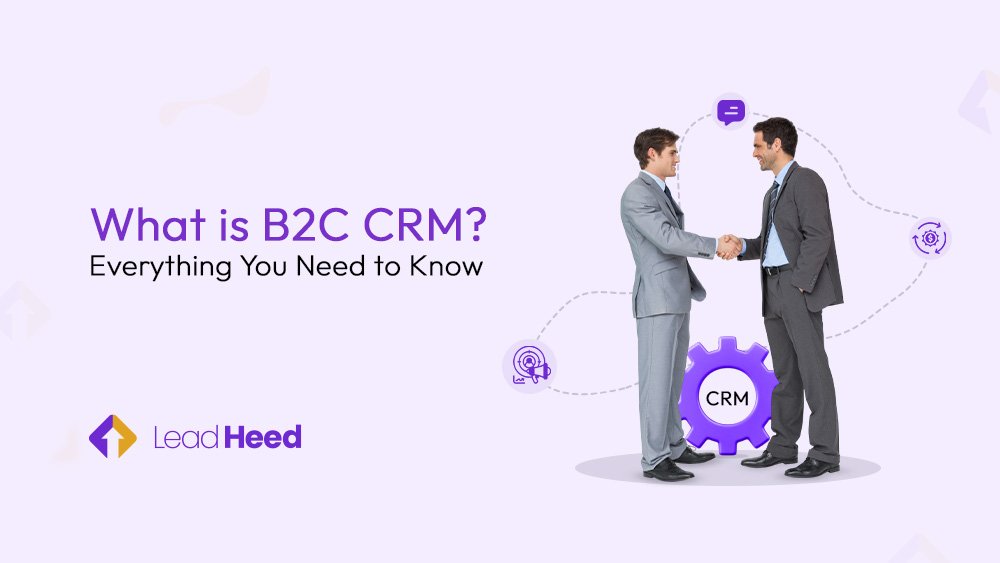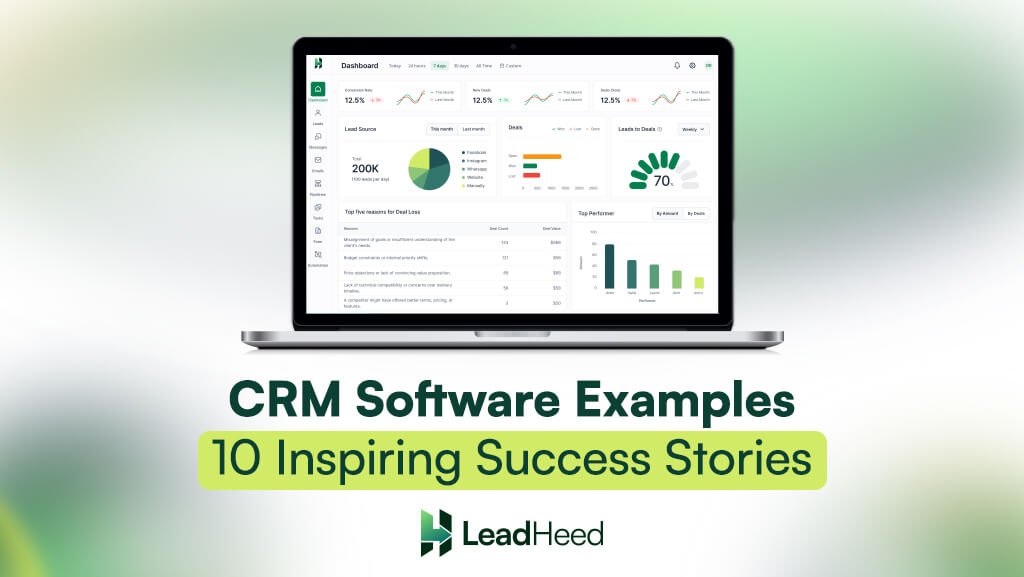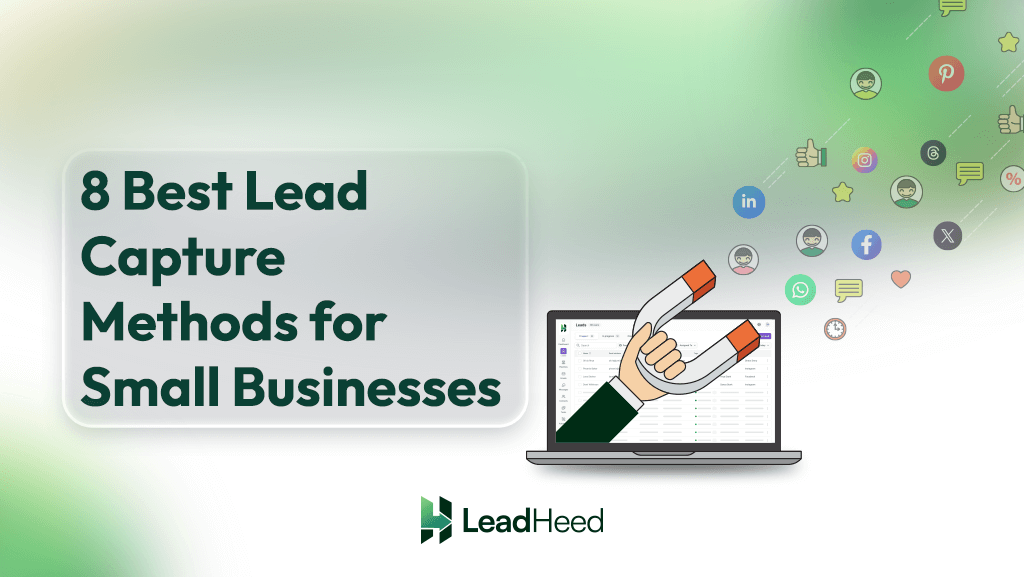The better you understand your customers, the easier it is to keep them coming back. For B2C companies, managing thousands of individual interactions can become complex unless there is a robust system in place. That is where B2C CRM comes in.
Unlike a B2B CRM software, a CRM for B2C business is specifically designed to help you manage high-volume customer relationships, personalize marketing at scale, and boost retention. Whether you want to keep customer information organized or deliver a tailored customer experience, a B2C CRM could be the solution you need.
In this guide, we’ll break down exactly what B2C CRM is, how it differs from B2B CRM, and how it can help your business grow.
What is Business-to-Consumer CRM?
A B2C CRM (Business‑to‑Consumer Customer Relationship Management) system is software designed to help companies that sell directly to individual consumers manage and enhance every interaction with each customer. B2C CRMs are built to handle high‑volume, rapid‑fire consumer interactions and transactions.
They centralize customer data, automate marketing, and enable personalized communication across channels like email, SMS, and social media. With tools for segmentation, behavior tracking, and real-time engagement, B2C CRMs help businesses deliver relevant offers, improve retention, and enhance the customer experience.
Differences Between B2C CRM and B2B CRM
B2C CRM allows businesses to handle huge numbers of individual customers instantly. B2B CRM, on the other hand, is intended to handle fewer clients but with a long-term business relationship.
Let’s make it even clearer with this quick side-by-side comparison:
|
B2C CRM |
B2B CRM |
| 1. B2C CRMs are designed for managing relationships with individual customers. | 1. B2B CRM is designed for managing relationships with other business organizations. |
| 2. Focuses on quick, personalized interactions and instant support. | 2. Focuses on relationship building, account management, and long-term engagement.
|
| 3. Sales cycles are shorter. | 3. Sales cycles are longer and complex. |
| 4. There are multiple sources of lead generation. | 4. There are fewer lead generation sources.
|
| 5. Handles high-volume consumer transactions. | 5. Handles complex, long-term business relationships. |
| 6. Tracks individual customer data to ensure secure and personalized interactions. | 6. Tracks company-wide data, managing multiple contacts within a business for strategic relationships. |
| 7. Enables rapid, often immediate decisions. | 7. Slows decision-making due to multiple stakeholders. |
| 8. Updates occur in real-time and are continuously available. | 8. System updates are scheduled and planned. |
| 9. Stores and manages a large volume of customer data. | 9. Manages less data but with deeper insights per account. |
Benefits of B2C CRM Software
A B2C CRM software does more than store data for a B2C business. It enhances customer experience, improves customer retention, increases sales, and streamlines operations.
Let’s break down how each of these benefits works:
1. Enhanced Customer Experience
B2C CRM improves customer experience by helping businesses get to know their customers in-depth, including their preferences and expectations. These insights allow businesses to create more personalized and meaningful experiences for each customer. It also enables teams to respond to customer questions or resolve issues more quickly.
With all the customer information consolidated in one place, support teams no longer need to search for data. It leads to quicker, more fluid service and happier customers. Furthermore, when customers are seen, heard, and known, they’re more likely to stay, make repeat purchases, and refer others to experience the same thing.
2. Improved Customer Retention
B2C CRMs help businesses ensure their customers stick around. Research shows that businesses using CRM improve customer retention by 47%. By tracking each interaction, CRM recommends the right products and maintains a connection with each customer. This degree of personal attention gives rise to trust and loyalty in the long run.
3. Increased Sales and Revenue
A B2C CRM helps businesses increase sales and revenue by making each customer interaction more relevant and effective. It tracks customer preferences, purchases, and shopping habits. With this knowledge, businesses can send targeted promotions, recommend items, and follow up at the right time.
This kind of smart selling makes it more likely for customers to buy. Over time, this personal approach helps turn one-time buyers into loyal customers, driving steady growth in revenue.
4. Streamlined Operations
Dealing with thousands of customers can be overwhelming, but a B2C CRM keeps everything in order. This automates activities such as follow-ups, emails, and data entry, saving time and reducing errors. Each piece of customer data is stored in one place, so departments can get what they need immediately without switching between software.
Not only does this make the workflow more efficient, but it also aligns marketing, sales, and support teams on the same page. This results in fewer human efforts, more streamlined processes, and more time to focus on strategy and customer experience.
Challenges of Using B2C CRM for Business
B2C CRMs are great for connecting with customers and growing businesses, but aren’t exactly free of challenges, which need careful planning. Whether it’s managing large amounts of data, keeping customers satisfied, or delivering seamless experiences, each challenge needs to be addressed with innovative solutions. Here are the main challenges businesses face with B2C CRM:
1. Data Management
Managing millions of customer records in a B2C CRM is a massive task due to the large number of individual consumers. You need strong systems to organize names, emails, and purchase details correctly without errors.
Mistakes like duplicate records or wrong information compromise marketing or sales efforts. Privacy breaches, like data leaks, can destroy customer trust and harm your business. You need ongoing monitoring and strong security to have clean and secure data.
2. Customer Expectations
Modern customers expect fast, personalized, and precise service each time. They appreciate it when brands remember their interests or past purchases. If your service is slow, they might switch to your rivals.
This hurts your brand’s reputation, weakening trust among customers. The pressure to deliver quick, tailored responses in B2C is a unique challenge.
3. Consistency Across Channels
In B2C CRM, customers expect the same experience whether shopping online, on social media, or in-store. Different prices or messages across these channels can confuse them and hurt loyalty. A strong, centralized system is necessary to keep everything aligned.
B2B CRM also requires consistent messaging, but focuses on multiple contacts within a single business. A unified CRM helps deliver clear, consistent communication.
4. Cost and Complexity
Despite its many strengths, B2C CRM can be expensive and complicated to implement, especially for small and growing businesses. You need money for software, training, and even more staff to operate it. Setup can be complicated with stages like data migration or system integration. For smaller companies, it’s hard to allocate the budget and resources.
Conclusion
B2C CRM is designed for companies that sell directly to individual consumers. It improves customer experiences, fuels sales, strengthens loyalty, and keeps things under control. Unlike B2B CRM, which focuses on fewer long-term business customers, B2C CRM is built for speed, personalization, and handling many customers at once.
If your business handles large volumes of customers, a CRM for B2C can prove to be a strong means to expand faster and provide better service. Platforms like LeadHeed are designed to make this easier by helping you connect with customers in smarter, more personalized ways—so you can focus less on the process and more on building relationships that last. Try LeadHeed today.
FAQ
What is B2C CRM?
B2C CRM is a type of customer relationship management tool used by businesses that interact directly with customers to manage and enhance their relationships with individual customers.
What is the difference between B2C CRM and B2B CRM?
B2C (Business-to-Consumer) and B2B (Business-to-Business) CRMs differ from each other in aspects like lead focus, lead generation, and sales cycle length. B2C CRMs focus on quick, personalized interactions, have multiple sources of lead generation, and a shorter sales cycle. B2B CRMs, on the other hand, focus on relationship building and long-term engagement, have fewer lead generation sources, and a longer and complex sales cycle.
Can small businesses use B2C CRM?
Indeed, small businesses can use B2C CRM, and several B2C CRM platforms offer scalable solutions ideal for startups and small businesses.
What is B2C, and what are examples?
B2C refers to the process in which a business sells its product directly to the end users. For example, Amazon and Netflix sell directly to individual customers.
What is B2C in CRM?
B2C in CRM refers to customer relationship strategies and tools tailored for businesses that deal directly with consumers.
Does B2B CRM work just like B2C CRM?
B2B and B2C CRMs work differently, even though both manage customer relationships. B2B CRMs focus on long-term business relationships, complex sales, and account management. B2C CRMs aim for scale, personal touches, and fast customer purchases. Each uses unique strategies and tools to fit its audience.



